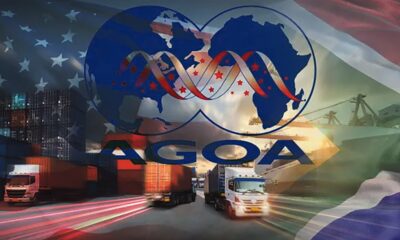Business
South Africa Moves to Close E-Commerce Tax Loopholes, Says Deputy Finance Minister Sarupen

South Africa is ramping up efforts to regulate and reform its e-commerce trade policy in a bid to improve customs efficiency, increase revenue, and level the playing field between local and international vendors. Deputy Finance Minister Ashor Sarupen made the announcement at the opening of the 2025 Governing Council of the World Customs Organisation (WCO) East and Southern Africa meeting in Pretoria, hosted by the South African Revenue Service (SARS).
With the rapid growth of online shopping, the country’s borders have seen an influx of small, low-value parcels that challenge the traditional customs systems. “Traditional models for processing, declaring, and inspecting goods are struggling to keep up, leading to delays and resistance on compliance,” Sarupen said.
He emphasized that South Africa, like many developing economies, can no longer afford outdated customs strategies that were designed before the e-commerce boom. “Our aim is to level the playing field between domestic and foreign vendors, close loopholes of potential tax abuse, and ensure the immediate collection of import VAT,” he explained.
The revised strategy will focus on tightening controls over small parcel imports, addressing gaps in import declaration systems, and strengthening enforcement mechanisms. This is especially important in the context of growing concerns about illicit financial flows, under-invoicing, and the evasion of duties and taxes.
The WCO meeting, which brings together customs officials from the Southern African Development Community (SADC), focused on the urgent need for policy innovation amid global trade uncertainty and rising digital transactions. Delegates warned that without modernized systems, customs administrations across the region risk falling behind, both economically and in terms of national security.
E-Commerce Surge Pressures Customs Infrastructure
Sarupen noted that the surge in e-commerce has “flooded borders” with a high volume of transactions that strain inspection capacity. Many of these transactions fall below the thresholds that traditionally triggered detailed customs scrutiny—making it easier for unscrupulous traders to take advantage of loopholes in the system.
The proposed reforms aim to address this imbalance and create a more transparent and fair trading environment, particularly for South African businesses that face stiff competition from international platforms that don’t always play by the same rules.
Closing the Loopholes: A Revenue and Security Priority
Importantly, the drive to close tax loopholes is not only a fiscal issue—it is also about national security and economic fairness. Customs plays a vital role in securing borders and ensuring that trade flows comply with national laws. In a digital economy where goods move faster than ever, customs enforcement needs to evolve just as quickly.
As South Africa works to position customs as an economic enabler rather than a bottleneck, Sarupen’s remarks underscore the need for agility, innovation, and strong cross-border cooperation.
South Africa’s renewed focus on closing e-commerce tax loopholes marks a significant step toward modernizing customs systems and safeguarding revenue. With global e-commerce showing no signs of slowing down, these reforms could help the country strike a balance between trade facilitation and fiscal responsibility.
{Source: SABC News}
Follow Joburg ETC on Facebook, Twitter , TikTok and Instagram
For more News in Johannesburg, visit joburgetc.com



























